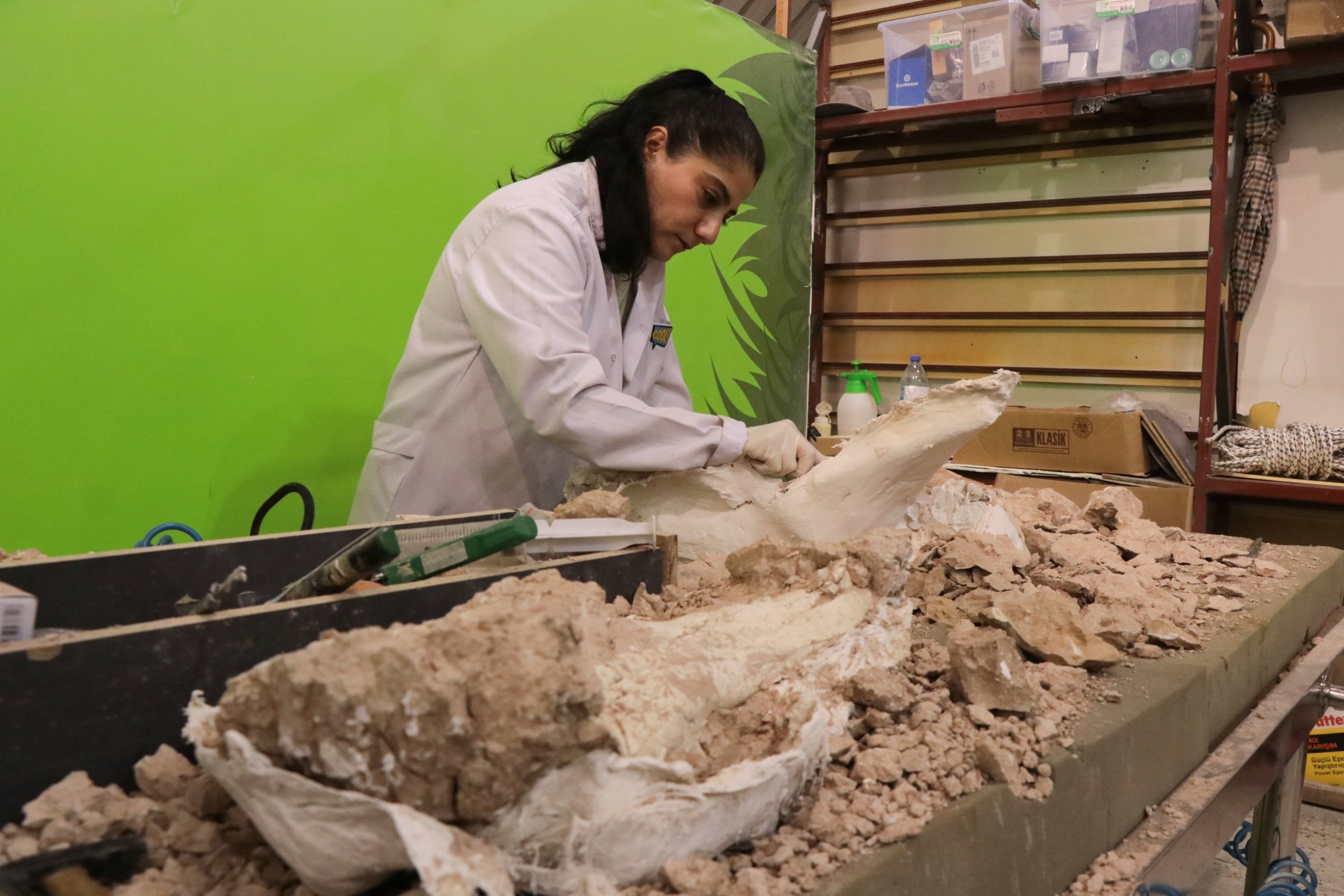© Turkuvaz Haberleşme ve Yayıncılık 2026
Recent excavations around the Yamula Dam in Kayseri, located in central Türkiye, have unveiled a remarkable collection of animal fossils estimated to be around 7.5 million years old. These excavations are being conducted under the auspices of the Kayseri Museum Directorate, highlighting the region's significant paleontological potential.
Ömer Dağ, an expert anthropologist involved in the project, shared that the excavation team, consisting of 10 members, successfully completed their work in the Çevril neighborhood in June. Following the excavations, the fossils were carefully transported to a laboratory for further analysis. Dağ noted that this year’s digs were particularly productive, yielding over 100 fossils. Among the notable finds are three-toed horses (Hipparion group), giraffes and a rare, complete pig skull – a significant discovery given the rarity of such specimens.

Dağ emphasized the exceptional preservation conditions in this area. “You can discover multiple specimens, many of which are nearly complete,” he explained. He highlighted that this year’s findings, including the intact pig skull, are especially valuable for understanding the region's prehistoric biodiversity.
The fossils from Kayseri have garnered significant interest from international scientists. This year, an elephant specialist from Finland visited the site and expressed enthusiasm for its potential, returning multiple times due to the site's diversity and richness. Dağ remarked, “Experts do not come just once. They wish to return because one visit is not enough to explore all the finds.”
In preparation for the new Paleontology Museum, the team is also engaged in a “mounting process” for the fossils. Dağ explained that they are working on showcasing the specimens in a way that helps visitors understand the morphology and size of these ancient creatures. This effort aims to enhance public engagement and appreciation for the region’s prehistoric heritage.
